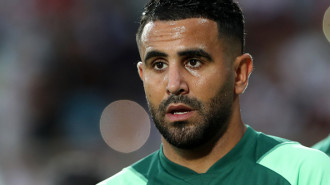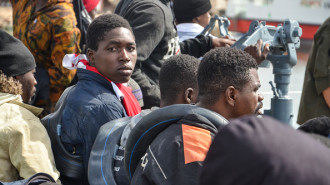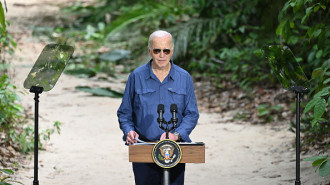Lebanon failing its people: UN poverty envoy
The Lebanese government is failing its people, the UN envoy on extreme poverty Olivier De Schutter said Friday, warning that the country is on course to becoming a failed state.
"Lebanon is not a failed state yet, but it is a failing state, with a government failing its population," he told a press conference in Beirut at the end of a 12-day visit to Lebanon.
"I saw scenes in Lebanon that I never imagined I would see in a middle income country," he said.
Lebanon's fragile government, formed in September to stem the country's worst-ever financial crash, has yet to take serious action to stop its downward spiral.
Around 80 percent of Lebanon's population is estimated to be living under the poverty line, as defined by international organisations.
After having fully lifted subsidies on fuel, the authorities are now gradually reducing them on medicine and flour.
The Lebanese pound has lost 90 percent of its value against the dollar on the black market.
A long-promised ration card program to assist the country's poorest has yet to materialise, with the cash-strapped government struggling to secure World Bank funding.
"While the population is trying to survive day-to-day, the government wastes precious time," De Schutter said.
"The government's inaction in the face of this unprecedented crisis has inflicted great misery on the population," he said.
The state's total absence has left many helpless in the face of Lebanon's unprecedented economic meltdown.
The price of essential foodstuffs has almost quadrupled in just one year, according to latest data from the Lebanese government.
Inflation rate averaged 131.9 percent over the first six months of 2021, the World Bank says.
Last month, the Save the Children charity warned: "Children in Lebanon are skipping many of their meals as parents struggle to afford basic foods."







 Follow the Middle East's top stories in English at The New Arab on Google News
Follow the Middle East's top stories in English at The New Arab on Google News


